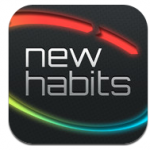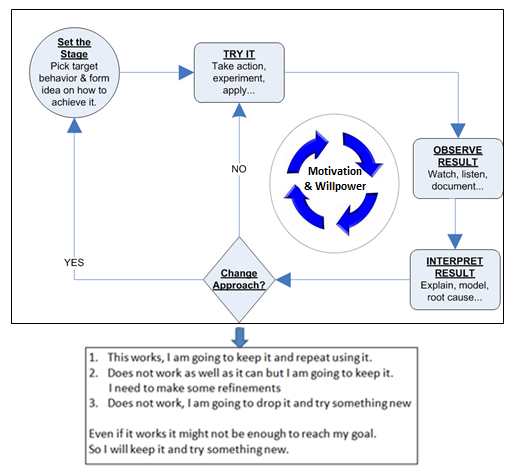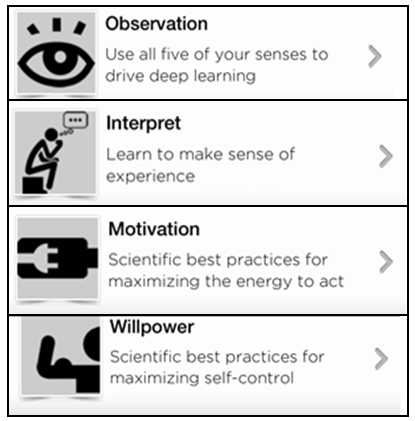Going in Circles as Best You Can!
Friday, June 21st, 2013Have you ever noticed that most improvement methodologies have you going in circles? Consider the examples below.
1. The Shewhart cycle (made popular by Deming) of plan-do-check-adjust that has been used in one form or another by nearly every organization on earth.
2. Kolb’s learning cycle, perhaps the most successful model of how adults learn from experience.
3. The method of validated learning (build-measure-learn) in the lean start-up movement that is sweeping the globe.
4. And even the scientific method itself.
This means there is a common architecture for learning, innovation and change making. It is used by the most successful coaches, leaders, entrepreneurs and activists. In my classes on leadership and innovation at Northwestern University, I present the common architecture for improvement as follows:
To get good at this you need to be skilled at each step (set the stage, try, observe and interpret), be able to manage motivation and willpower and otherwise move through the cycle fast and cheap.
That is a tall order. To help clients and students get good at going in circles, I have created a free mobile learning program called NewHabits. The program consists of decks of knowledge cards, including for example,
 Each deck includes 25 proven practices for getting better at one of the steps in the improvement process. A card in the deck “sets the stage” and gives you something specific to try to get better at observation, interpretation, willpower or whatever you select. Having 25 cards in a deck keeps you going through the improvement process multiple times. Cards are designed to fit into your daily work or home routine and takes just minutes to play. Each card is one small improvement step but the effects accumulate over time into significant new competencies and habits. In other words, the App will keep you going in circles until you get better!
Each deck includes 25 proven practices for getting better at one of the steps in the improvement process. A card in the deck “sets the stage” and gives you something specific to try to get better at observation, interpretation, willpower or whatever you select. Having 25 cards in a deck keeps you going through the improvement process multiple times. Cards are designed to fit into your daily work or home routine and takes just minutes to play. Each card is one small improvement step but the effects accumulate over time into significant new competencies and habits. In other words, the App will keep you going in circles until you get better!
The neat thing about NewHabits is you can write a deck of knowledge cards to address many behavior change and skill building challenges. For example, you can create decks to improve sales skills, customer service, teamwork or creativity. Or on the personal front knowledge cards are a good way to approach money, relationship and health challenges. I’ve taught hundreds of clients and students how to write knowledge cards and invite you to do the same.





